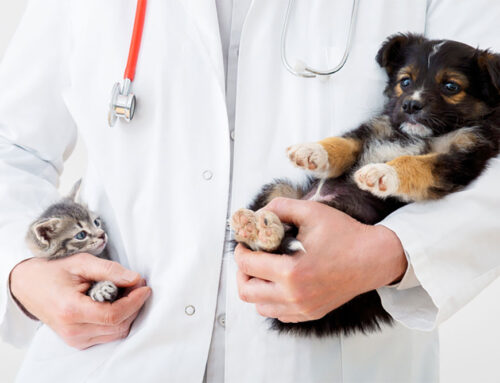In recent years, not only have genetic technology advancements revolutionized human health care, but they also have opened up new possibilities for early disease detection and preventive veterinary medicine. Our Midtown Veterinary Hospital team explains why genetic screening holds immense promise for helping you ensure your pet’s health is the best it can be and enhancing their quality of life.
Genetic screening for pets
Your pet’s genetic screening involves analyzing their DNA to uncover potential predispositions toward certain diseases, traits, or behaviors. The screening process typically begins with obtaining a sample of your pet’s DNA, often through a cheek swab or blood test. The sample is then sent to a genetic laboratory, where it is analyzed using special techniques to identify genetic markers and pinpoint breed-specific health concerns.
How genetic screening informs pet care
Genetic screening helps you and your veterinarian prepare for possible health concerns your pet may experience later in life. This early understanding can help shape your veterinarian’s advice on everything from essential daily care to preventive medicine for your pet.
The advantages of genetic screening for pets are many, but the following are the most notable:
- Early disease detection — One of the greatest benefits of genetic screening for pets is the early detection of potential health issues. By identifying genetic predispositions for certain diseases or conditions, your veterinarian can intervene when your pet is still healthy and implement management strategies. These proactive steps, in turn, can significantly improve outcomes and prolong your furry pal’s life span.
- Personalized preventive care — Armed with more knowledge through genetic screening, your veterinary team can tailor preventive care plans to meet your pet’s individual needs. Customized vaccination schedules, dietary recommendations, or lifestyle modifications aimed at reducing your pet’s risk of developing specific health problems are ways their wellness care can be personalized.
- Better breeding practices — For pet breeders, genetic screening can help ensure the genetic health of breeding animals and help prevent the transmission of hereditary diseases to future generations. By selectively breeding cats and dogs based on their genetic profiles, breeders can work toward producing healthier offspring with reduced susceptibility to inherited disorders.
- Behavioral insights — You may wonder why one dog or cat displays certain behaviors while others raised in the same household do not. Genetics can explain. Beyond health considerations, genetic screening can clarify certain behavioral traits or tendencies pets exhibit. Understanding the genetic basis of behaviors, such as aggression, anxiety, or compulsive tendencies, can help with behavior modification efforts and enhance the human-animal bond.
Pet genetic screening considerations

Genetics cannot explain everything about your pet, however. Factors such as how your pet was raised, their environment, and experiences they’ve had are all critical in shaping their behavior and health. In other words, your pet is a mix of nature and nurture.
Occasionally, as with any form of technology, there can be errors, such as a false positive or negative in disease predisposition. Interpretation of genetic test results requires expertise, so it is important to consider your veterinarian’s feedback on reputable DNA companies. Additionally, ethical considerations surrounding genetic testing and privacy concerns related to the use of pet genetic data should be discussed with your veterinarian.
Genetic screening represents a breakthrough in modern veterinary medicine, offering a greater understanding of your pet’s health and behavior. By leveraging the information obtained through genetic testing, our Midtown Veterinary Hospital team can take proactive measures to safeguard your pet’s health and strengthen the bond the two of you share. Contact us to learn more about genetic screening and to schedule an appointment.





Leave A Comment